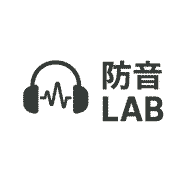Recent years have seen quiet transformation in the soundproof room industry.
As home musical activities and video streaming normalized, soundproof rooms evolved beyond specialist equipment. Since 2020, established manufacturers like Yamaha and Kawai, plus construction material companies, housing developers, and even home booth newcomers—the entire industry enters restructuring phases.
This article introduces latest trends centered on 2020-2025 major manufacturer developments, new products, and model updates understandably.
1. Five Years of Manufacturer Movement#
2020-2025 Market Change Retrospective#
Soundproof room market demand rapidly expanded through streaming culture and remote work growth.
Originally products targeting musicians and educational facilities now serve entirely new user segments—remote workers, VTubers, video editors.
Soundproofing purposes also shifted. Previously centered on “preventing sound leakage,” current emphasis includes “pleasantly resonating sound” and “creating focused environments”—valuing sound comfort and psychological security.
Technology Innovation Across Manufacturers#
2020s early manufacturer commonalities: “insulation + acoustic tuning,” “high performance + weight reduction,” “experiential sales.”
Yamaha renewed “Sefine NS” pursuing natural resonance. Kawai introduced new Dr-60 class units. Construction material manufacturer DAIKEN launched new series integrating soundproofing and thermal insulation.
Budget segments saw new entrants like assembled simple soundproof booths “Forte.”
2. Yamaha Developments: Sefine NS & “Natural Sound” Evolution#
Flagship “Sefine NS” Series Renewal#
Pre-2020 Models:
- Emphasis: Maximum sound insulation
- Acoustics: Somewhat artificial
- Ventilation: Standard
2022-2025 Renewal:
- Natural acoustic balance
- Improved ventilation systems
- Climate control integration
- Smart monitoring options
Price: 980,000-1,800,000 yen (depending on size/spec) Performance: D-45~60
Technology Highlights#
Acoustic Optimization:
- Interior resonance tuning
- Frequency-balanced absorption
- Natural sound reproduction
Comfort Enhancements:
- Quieter ventilation (<28dB)
- Better climate control
- Extended session usability
3. Kawai Updates: Performance-Price Balance#
Nasal Series Enhancements#
Focus:
- Cost-performance optimization
- Piano acoustic specialization
- Competitive pricing maintenance
New Features (2023-2025):
- Updated seal technology
- Improved assembly systems
- Enhanced warranty terms
Price: 850,000-1,600,000 yen Performance: D-45~55
Market Positioning#
Strategy:
- Yamaha alternative
- Value-conscious buyers
- Piano-player focus
- Quality without premium pricing
4. New Market Entrants#
Budget Segment Expansion#
Danbocchi Evolution:
- Original: Basic cardboard booth
- Current: Multiple variants
- Price: 60,000-200,000 yen
- Target: Streamers, casual users
International Brands:
- European designs
- Premium aesthetics
- 100,000-500,000 yen range
- Growing presence
Technology-Driven Newcomers#
Smart Soundproofing Startups:
- AI acoustic optimization
- IoT monitoring integration
- Modular designs
- Direct-to-consumer models
Early Stage but Promising: Potential market disruption
5. Industry Trends#
Sustainability Focus#
Eco-Friendly Materials:
- Recycled content increase
- Sustainable sourcing
- Carbon footprint reduction
- Green building certification
Consumer Appeal:
- Environmental consciousness growing
- Regulatory compliance
- Marketing advantage
Customization Demand#
Beyond Standard Models:
- Modular systems
- Tailored acoustic profiles
- Integrated technology
- Personalized aesthetics
Manufacturer Response:
- Expanded option menus
- Consultation services
- Custom build divisions
Digital Sales Channels#
E-Commerce Integration:
- Online configuration tools
- Virtual showrooms
- Direct sales increase
- Reduced dealer markup
Changing Distribution:
- Traditional showrooms still important
- Online research dominant
- Hybrid purchasing journeys
Price Trend Analysis#
2020-2025 Price Changes#
Entry Level:
- 2020: 500,000-900,000 yen
- 2025: 650,000-1,200,000 yen
- Change: +30-33%
Mid-Range:
- 2020: 900,000-1,800,000 yen
- 2025: 1,150,000-2,300,000 yen
- Change: +28-28%
Premium:
- 2020: 1,800,000-4,000,000 yen
- 2025: 2,300,000-5,000,000 yen
- Change: +28-25%
Trend: Consistent increases across segments, recently stabilizing
2025-2030 Projections#
Likely Scenario:
- Gradual increases (+3-5% annually)
- Material costs stabilizing
- Labor costs still rising moderately
- Technology offsetting some increases
Best Case:
- Manufacturing efficiency improvements
- Material cost decreases
- Price stabilization or slight decreases
Worst Case:
- Continued material inflation
- Severe labor shortages
- Significant price increases (+8-12% annually)
Consumer Guidance#
Timing Purchases#
Buy Now If:
- Immediate need
- Budget secured
- Desired model available
- Prices potentially rising
Consider Waiting If:
- Flexible timeline
- New model announcements imminent
- Budget accumulation needed
- Hoping for promotions
Manufacturer Selection#
Traditional Leaders (Yamaha, Kawai):
- Proven reliability
- Comprehensive support
- Higher pricing
- Broad selection
Emerging Players:
- Competitive pricing
- Innovative features
- Limited track records
- Growing support networks
Decision: Balance reliability vs. value
Conclusion#
Soundproof room manufacturer landscape in 2025:
- Established leaders maintain dominance
- New entrants bringing innovation
- Prices elevated but stabilizing
- Technology integration accelerating
- Consumer options expanding
Key Takeaways#
- Major manufacturers (Yamaha/Kawai) still safest choices
- New entrants offer value alternatives
- Prices up 25-33% since 2020
- Future moderate increases likely
- Research thoroughly before purchasing
Stay informed about manufacturer developments, compare options comprehensively, and time purchases strategically for optimal soundproof room selection meeting needs and budget.
The industry evolution promises better products, more options, and improved value over time. Patient, informed buyers achieve best outcomes in this dynamic market.
